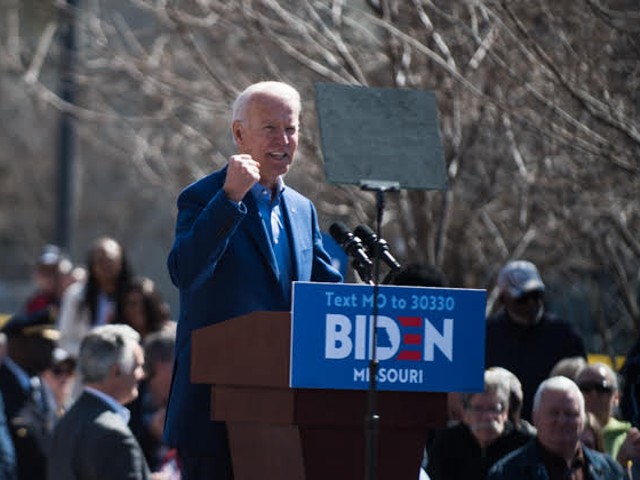
In 2007, the year Woods was convicted at trial, the average sentence for drug trafficking was about nine years. Woods' sentence of 25 years, without possibility of parole, exceeded the average for every crime recorded that year — including rape, assault, burglary, forgery and theft — with the only exception being murder.
Woods' family ran a used car lot in Ferguson, so he had more resources than the average impoverished drug offender. He hired several criminal defense attorneys who would spend the better part of a decade trying, and failing, to challenge the legality of the police search that had led to Woods' arrest in 2006.
By 2017, Woods and his lawyers were ready with a new tactic. They sued the Missouri Department of Corrections. And this time, improbably, they won. After more than a decade in prison, Woods got the call he never thought he'd hear. He had a parole hearing. ("It was surreal," he says now. "I almost fainted, like, 'This is actually happening, and they're treating me like normal.'")
According to Woods' attorney, Kent Gipson, Woods had spent hours in the prison law library writing the first draft of the motion that eventually led to his release. Among other arguments, the motion submitted to Cole County Judge Daniel Green focused on the fact that Missouri's legislature had repealed the PPDO statute in 2014, amending the state's criminal code to treat drug offenders much like other crimes when it came to parole.
"Changes to a prisoner's parole eligibility are clearly retroactive," Woods' attorneys argued.
But there was some ambiguity. The legislature's repeal did not directly address whether its effects were retroactive. Woods' motion argued that the law's intent, however, was obvious; the bill's sponsors intended their repeal to aid those whom the law had trapped in prison — after all, why else enact criminal justice reform, if not to strike "an unwise and unproductive law" from those currently suffering from its disproportionate sentences?
The argument worked. In a one-page judgment sent in November 2017, Judge Green ordered the department of corrections to "apply existing laws" to Woods' parole eligibility. It wasn't a release order, per se, but it was opportunity for Woods to make his case for rehabilitation, which was a good one. He'd been convicted of a nonviolent drug crime and spent eleven years as a model prisoner. He'd already served a sentence far longer than those charged with the exact same crime.
Woods walked free on March 23, 2018. And like with Mizanskey's case beforehand, other convicted drug offenders took note of Woods' freedom — and they moved to follow the path he'd set down. They submitted their own motions (some becoming clients of Woods' attorney) and sought to make the same argument about their eligibility for parole.
The window was wide open. And that's when Missouri Attorney General Josh Hawley stepped in and slammed it shut.
As the lawyers representing the state, the Missouri Attorney General's Office moved to defend what it argued was the state's actual intent around its drug laws. To paraphrase: Woods had been convicted. The law said no parole. He owed 25 years. End of story.
While representing the Missouri Department of Corrections, the state's attorneys did everything they could to keep Woods in prison, which, however inadvertently, also demonstrated the absurd cruelty of the situation. In a December 2017 motion opposing Woods' parole eligibility, Assistant Attorney General Andrew Crane argued that "the possibility of erroneous release" would cause "irreparable harm" to all parties involved — including Woods.
Essentially, the state argued that keeping Woods in prison during the legal challenge would protect him from the pain of tasting temporary freedom, given the possibility that he would be "pulled back from the community to complete the service of his sentence." Woods, the state's argument continued, was also a dangerous felon — and while he had had been convicted of two violent crimes, those cases occurred before Woods' eighteenth birthday, more than three decades prior to his current legal problems.
Still, the attorney general's brief suggested, without citing further evidence, that "Due to Woods' criminal history it may be difficult, if not impossible, to safely return him to the Department's custody."
Even after the judge ordered Woods' parole eligibility restored, the state correctional systems resisted the command by simply not doing anything. In response, Woods' attorney asked the court to hold the department of corrections in contempt for failing to obey the court order, and the threat worked. Finally, the wheels of justice turned in Woods' favor.
And yet, while Woods eventually got his hearing and release date, the victory began the inexorable process of those same wheels spinning back around to crush his second chance at life.
First, in 2019, an appeals court ruled against Woods but referred the case to the Missouri Supreme Court, believing "clarity" was needed on the legal issues. In the meantime, the pending cases involving the other drug offenders trying to obtain their own parole hearings were stalled, and so they too watched Woods' case anxiously, seeing their fates tied up in the deliberations.
In the end, the high court also ruled against Woods. Writing for the majority, Judge Patricia Breckenridge wrote that Woods should never have been released and that his previous arguments — which had worked on Judge Daniel Green in Cole County — were misapplied and in violation of another state law, which explicitly bans retroactively applying new laws to previous cases where offenders had already been tried and sentenced.
To attorney Kent Gipson, the consequences that the court's ruling represent are worse than absurd. Gipson represents multiple nonviolent drug offenders serving longer prison sentences than most criminals convicted of violent crimes — and something is wrong, he argues, when your legal system doesn't seem to distinguish much difference between a murderer and a drug dealer.
"This could have all been avoided," Gipson says. "The department of corrections and attorney general could have just taken the position from the get-go, they could have said, 'This is a great idea, let's apply this law retroactively and help reduce the prison overcrowding,' or, 'Freeing up beds for murderers and rapists by letting out nonviolent drug guys seems to be eminently sensible.'"
But that's not how things work, and at this point of the interview, Gipson laughs at his own suggestion that Missouri's corrections system would do something sensible, let alone eminently.
"I've been doing this too long to be a natural optimist," he admits. "It's not in their DNA or something, to give a prisoner a break."
As Woods' attorney, Gipson has very few cards left to play. A rehearing motion pending with the Missouri Supreme Court "is rarely if ever granted," he concedes. He's also filed a petition with the governor to commute Woods' sentence, and a local legislator, Representative Cheri Toalson Reisch (R-Columbia) filed a bill last month to "[specify] that certain offenders found guilty trafficking drugs in the second degree shall be eligible for parole after serving ten years," which would include Woods and dozens (but not all) of the remaining 100-plus cases left behind by the repeal of PPDO.
But the process of lawmaking is slow, and the bill has yet to pass its first vote in committee.
There's one other tactic in Gipson's pocket. In a February 12 letter to the Missouri Attorney General's Office — now led by Eric Schmitt after Josh Hawley became a U.S. senator — he charged that the state's plan to put his client back in prison is "inhumane, cruel, and fundamentally unjust."
But there was still time to make it right, Gipson added, if only the Attorney General would move to voluntarily dismiss its own appeal, negating, in theory, the Supreme Court's order.
"In light of a prosecutor's solemn duty to do justice, we believe that it is not a close call that justice dictates the dismissal of this appeal," Gipson wrote. He added that "this action ... will not impact the 120 men and women in Missouri who have similar circumstances."
To put it another way, Gipson's offer amounted to, "You can keep the rest in prison, but save my client."
Gipson acknowledges, "It would screw everyone else."
Earlier this month, the RFT contacted the attorney general's office, and we submitted questions about the state's interest in putting Woods back in prison and whether it was even legally possible, as Gipson suggests, for the office to dismiss its open appeal in order to keep Woods free while keeping the other drug offenders imprisoned. A spokesman declined to comment.






